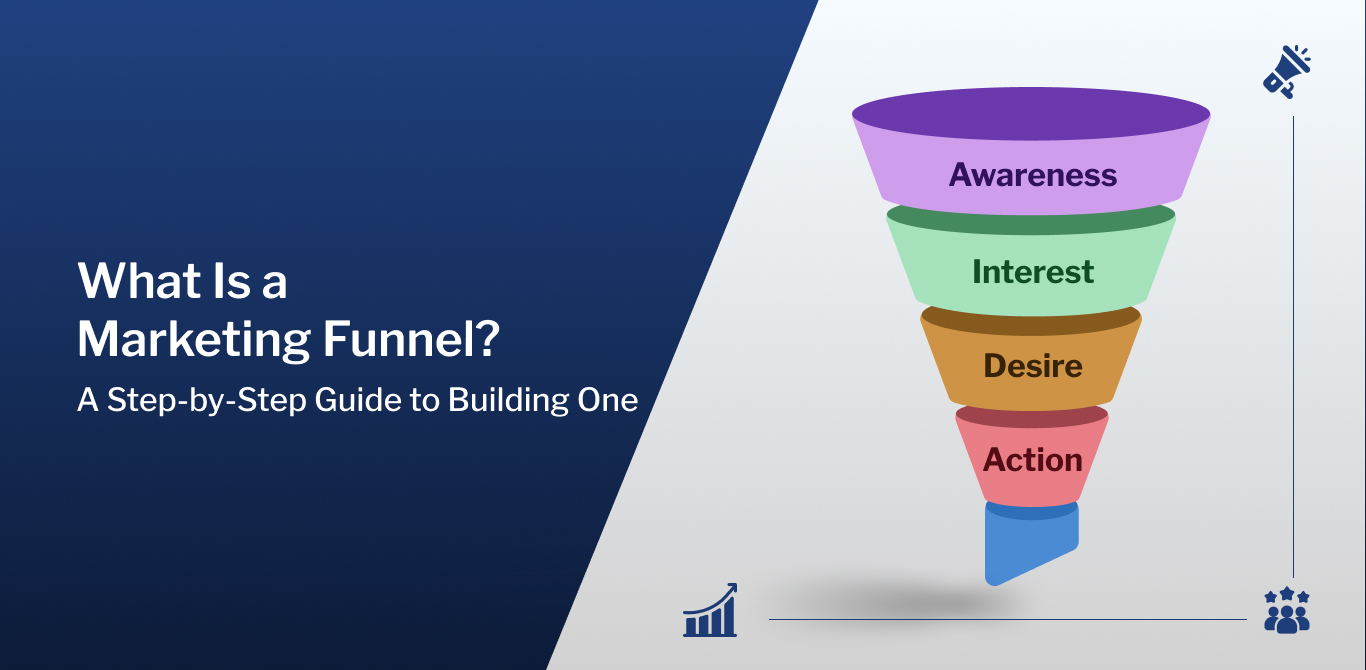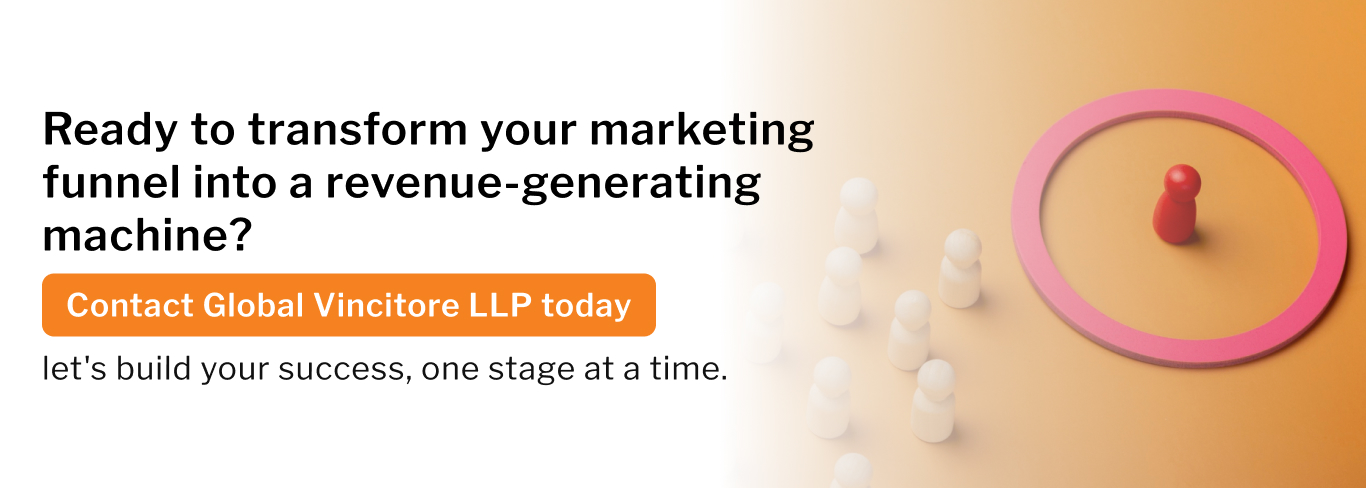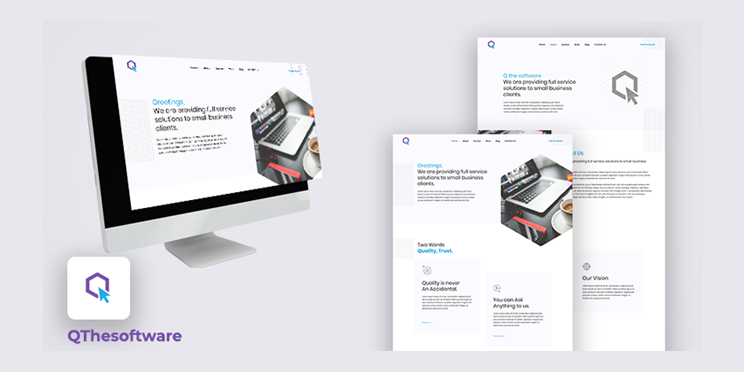In the ever-changing landscape of digital marketing, it is important to understand the marketing funnel. Consumers from the conversion process go through this structured journey, providing the best customer experience and maximizing your marketing efforts. In the following universal guide, we are going to discuss the stages of the marketing funnel, marketing strategies of the funnel, and some actionable tips to construct an iron customer funnel.
Understanding the Marketing Funnel
A marketing funnel is an abstract concept that explains the stages a potential customer passes through before it finally makes it to a purchase. It visualizes how one develops from the stage of knowing about your brand all the way to conversion and beyond. The metaphor of a funnel is derived from the perspective of how many prospects enter the top and how only winnowed prospects reach the bottom, suggesting that very different tactics should be applied at every stage in the marketing funnel.
The Stages of the Marketing Funnel
The digital marketing funnel stages follow the AIDA model: Awareness, Interest, Desire, and Action. Let’s take a closer look at each stage:
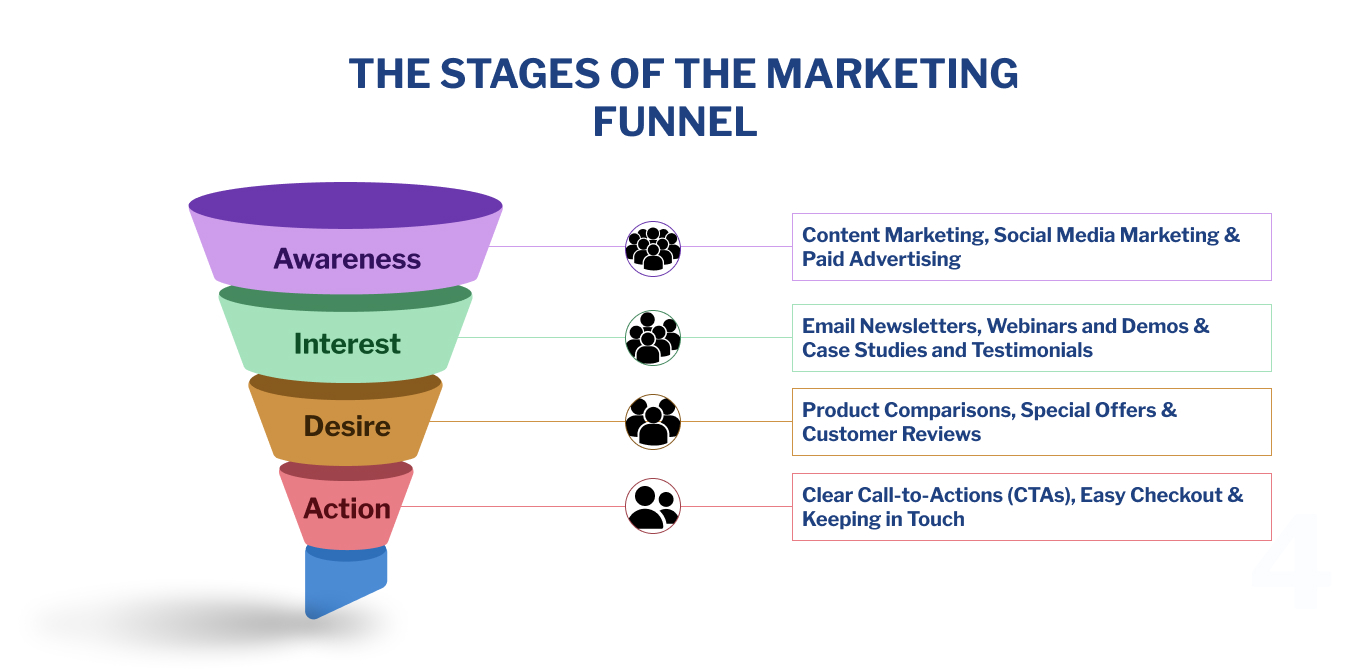
- Awareness
This step in your marketing journey sees your brand or product gain recognition. You can plan to create recognition through:
-
- Content Marketing: Putting out helpful blog posts, videos, and infographics.
-
- Social Media Marketing: Connecting with audiences on sites like Facebook, Instagram, and LinkedIn.
-
- Paid Advertising: Using Google Ads or social media ads to reach more people.
- Interest
After becoming aware, potential customers move to the interest stage, where they look for more details. You can feed their interest by:
-
- Email Newsletters: Sending tailored content and updates.
-
- Webinars and Demos: Offering live sessions to show off your product’s worth.
-
- Case Studies and Testimonials: Giving social proof to build trust.
- Desire
At this point, potential buyers size up what you’re selling against what others offer. You can make them want your product more by:
-
- Product Comparisons: Showing off what makes your product special and how it helps.
-
- Special Offers: Giving short-term deals or extras.
-
- Customer Reviews: Letting people see good things that happy customers have said.
- Action
The final stage happens when prospects do what you want, like buying something or joining up. You can make this easier by:
-
- Clear Call-to-Actions (CTAs): Using buttons that grab attention, such as “Buy Now” or “Sign Up”.
-
- Easy Checkout: Making sure people can pay without hassle.
-
- Keeping in Touch: Sending emails to confirm and help new customers get started.
Funnel Strategy in Marketing
A good funnel strategy in marketing matches your plans to each part of the funnel. This includes:
-
- Grouping Your Audience: Changing your messages to fit different types of people and how they act.
-
- Making Things Automatic: Using tools like CRM systems to handle leads well.
-
- Checking How It’s Going: Looking at numbers often to make the funnel work better.
Marketing to Sales Funnel
The shift from marketing to sales plays a key role. Make sure the handover goes by:
-
- Getting Marketing and Sales Teams on the Same Page: Setting up clear talks and shared aims.
-
- Scoring Leads: Ranking leads based on how likely they are to buy.
-
- Ongoing Feedback: Swapping insights between teams to make plans better.
Marketing Funnel Awareness
To create marketing funnel awareness, you need to teach your audience about your brand’s worth. Some ways to do this include:
-
- SEO Boost: Making sure your content shows up high in search results.
-
- Team-ups with Influencers: Working with big names in your field to reach more people.
-
- Getting Involved in Communities: Taking part in talks and groups that matter to your niche.
Example of Marketing Funnel
Think about an online clothes shop:
-
- Awareness: Ads on social media show new clothes.
-
- Interest: Emails with tips on how to style outfits.
-
- Desire: Short-term deals on certain items.
-
- Action: Simple buying process with several ways to pay.
This organized method leads shoppers through the steps, making it more likely they’ll buy something.
Content Marketing Sales Funnel
Content marketing integrated within your sales funnel increases engagement. Some strategies include:
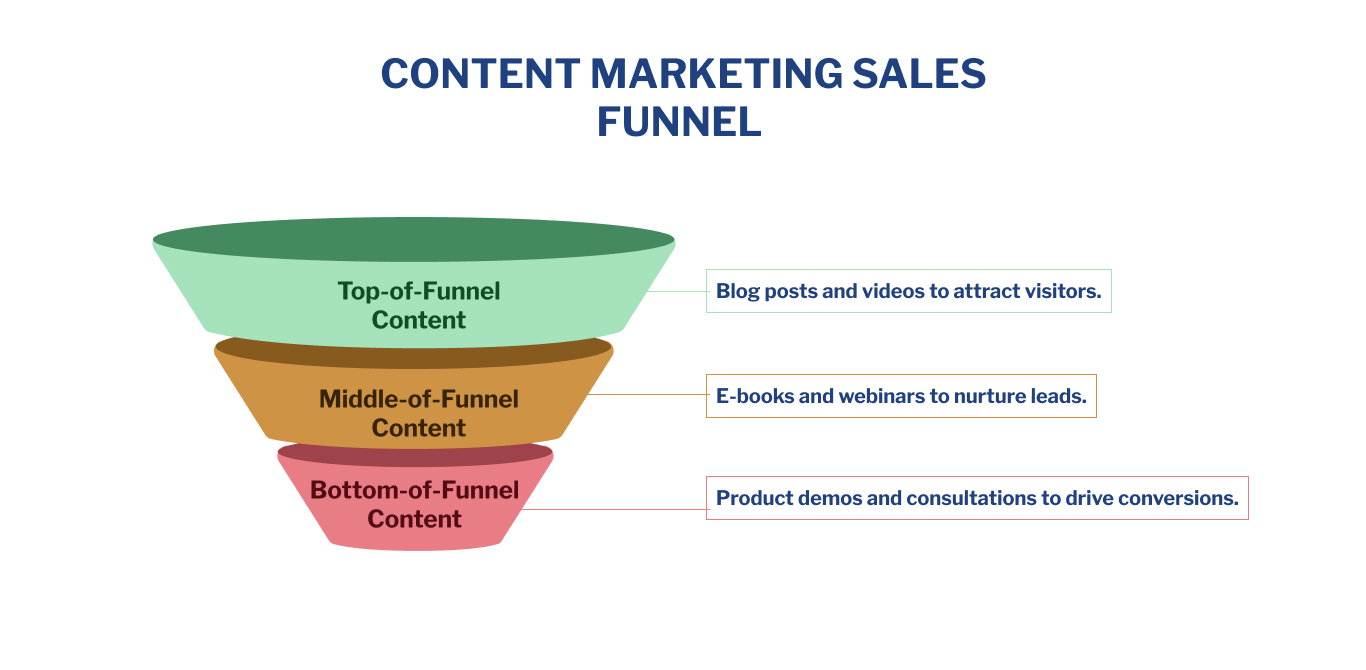
-
- Top-of-Funnel Content: Blog posts and videos to attract visitors.
-
- Middle-of-Funnel Content: E-books and webinars to nurture leads.
-
- Bottom-of-Funnel Content: Product demos and consultations to drive conversions.
Funnel Marketing Agency
Collaborating with a funnel marketing agency can bring experienced know-how in optimizing your funnel. They provide:
-
- Customized Strategies: Customized plans that suit your business needs.
-
- Advanced Tools: Utilizing the latest technologies for automation and analytics.
-
- Expert Guidance: Providing insights based on industry best practices.
Digital Marketing Company in Ahmedabad
For businesses in Ahmedabad, collaborating with a local digital marketing company in Ahmedabad offers the advantage of regional market knowledge. They can assist in:
-
- Localized Campaigns: Targeting specific demographics within Gujarat.
-
- Cultural Relevance: Crafting messages that resonate with local audiences.
-
- Networking Opportunities: Leveraging local events and partnerships for growth.
Conclusion
Building any sort of marketing funnel applied as efficient requires strategy-based methods aligning each phase of the customer journey with its own particular mechanism. By knowing the steps of a marketing funnel and implementing proper strategies in certain stages, one can bring prospects from awareness to conversion effectively. Businesses seeking to optimize their funnel would do better by teaming with a well-known funnel marketing agency or a digital marketing company in Ahmedabad.
Global Vincitore LLP is into customized funnel marketing aligned toward results. Our team of experts enables a business through complicated digital marketing to enable sustainable growth and success.
Frequently Asked Questions
Q1. What is a marketing funnel?
A. A marketing funnel is a visual representation of the customer journey from the first interaction with your brand to the final purchase. It outlines the stages prospects go through, such as awareness, interest, consideration, and conversion.
Q2. Why is a marketing funnel important?
A. A marketing funnel helps businesses understand and optimize how they attract, engage, and convert potential customers. It provides structure to your marketing strategy and improves efficiency and ROI.
Q3. What are the main stages of a marketing funnel?
A. The typical marketing funnel includes:
-
- Awareness: Attracting new visitors
- Interest: Educating and nurturing leads
- Consideration: Showcasing solutions and building trust
- Conversion: Turning leads into paying customers
Some models also include retention and advocacy after the purchase.
